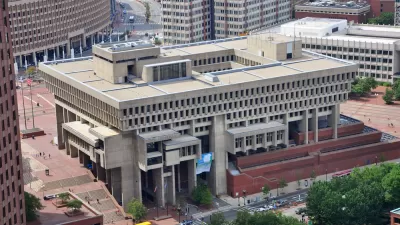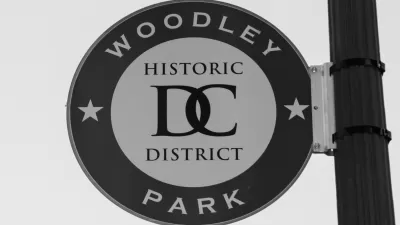It’s been nearly 60 years, but the city of Boston is finally ready to do a comprehensive rewrite of its zoning code.

[Updated: 9/14/20233] The city of Boston will update its zoning code for the first time since 1964, in a historic city that overwhelmingly tends to plan and approve development with the use of variances, rather than with by-right development.
Boston Mayor Michelle Wu announced the project earlier this week, according to a paywalled article by Catherine Carlock for the Boston Globe. The city’s zoning code currently totals 4,000 pages.
“The overhaul will start with restructuring the Boston Planning and Development Agency’s planning department to create teams focused on zoning reform and compliance, with the hopes of relying less on the Zoning Board of Appeal in the future,” reports Carlock.
“The overhaul will be guided by a report from Sara C. Bronin, a professor at Cornell University and founder of the National Zoning Atlas project, which dubs the current zoning code “bloated, outdated, inconsistent, and inequitable,’” adds Carlock for more detail. “Some of Bronin’s suggestions include reversing the city’s “longstanding practice of neighborhood-specific zoning” and culling the code to 500 pages, creating a mixed-use zoning district, and emphasizing growth and additional housing near MBTA stations.”
FULL STORY: Wu unveils plans to revamp Boston’s decades-old rules for what can be built where [paywall]

Alabama: Trump Terminates Settlements for Black Communities Harmed By Raw Sewage
Trump deemed the landmark civil rights agreement “illegal DEI and environmental justice policy.”

Planetizen Federal Action Tracker
A weekly monitor of how Trump’s orders and actions are impacting planners and planning in America.

Why Should We Subsidize Public Transportation?
Many public transit agencies face financial stress due to rising costs, declining fare revenue, and declining subsidies. Transit advocates must provide a strong business case for increasing public transit funding.

Understanding Road Diets
An explainer from Momentum highlights the advantages of reducing vehicle lanes in favor of more bike, transit, and pedestrian infrastructure.

New California Law Regulates Warehouse Pollution
A new law tightens building and emissions regulations for large distribution warehouses to mitigate air pollution and traffic in surrounding communities.

Phoenix Announces Opening Date for Light Rail Extension
The South Central extension will connect South Phoenix to downtown and other major hubs starting on June 7.
Urban Design for Planners 1: Software Tools
This six-course series explores essential urban design concepts using open source software and equips planners with the tools they need to participate fully in the urban design process.
Planning for Universal Design
Learn the tools for implementing Universal Design in planning regulations.
Caltrans
Smith Gee Studio
Institute for Housing and Urban Development Studies (IHS)
City of Grandview
Harvard GSD Executive Education
Toledo-Lucas County Plan Commissions
Salt Lake City
NYU Wagner Graduate School of Public Service





























